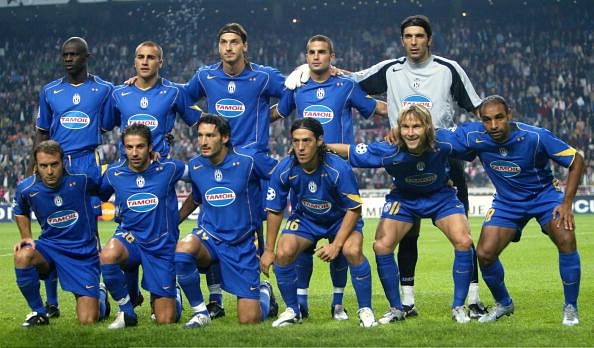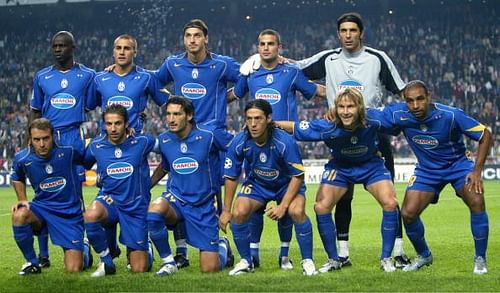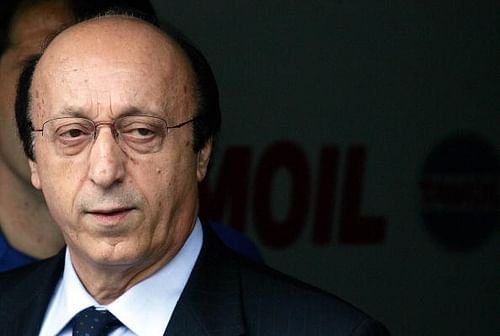
Calciopoli 2006: The match-fixing scandal that got Juventus relegated

Just days before the start of the FIFA 2006 World Cup tournament, Italian National team captain Fabio Cannavaro and his team-mate at Juventus, Frenchman David Trezeguet, travelled to Rome to bear witness to the allegations of 'illegal competition with use of threats and violence' at GEA.
Goalkeeper Gianluigi Buffon, the Juventus goalkeeper and one of Azzurri's best players in the tournament, was more seriously threatened, with charges of ‘involvement in illegal betting on domestic games’ being levied against him.
Trezeguet missed a crucial penalty as France lost the final and a jubilant Cannavaro held the World Cup aloft for the world to behold. However, a very different fate awaited the players back in their nation.
It was the first time in history that a side recently crowned as the World Champions were flying back home to appear before investigators who, effectively, were accusing them of being corrupt.
The Calciopoli
Back in 2004, two very different yet startling rumours started doing the rounds. One alleged that the Juventus players were susceptible to doping while the other talked of illegal betting and corrupt referees. Naturally, a taskforce was set up and the Italian police began investigating these claims.
Though both rumours proved to be ungrounded, the investigating magistrates' wiretaps turned up something much bigger: The Calciopoli.
In the spring of 2006, the Turin magistrates approached Italy’s football authorities but swiftly realised that the governing bodies were themselves implicated. Then Prime Minister Silvio Berlusconi, president and owner of AC Milan, was not in favour of a public investigation as his club was one of the big four in the line of fire.
Hence, the magistrates turned to the press and the Calciopoli became front page news.
Voluminous but inconclusive evidence from the wiretaps showed the then Juventus sporting director Luciano Moggi communicating in an “exclusive” manner with the referee designators of Serie A, attempting to influence results by picking certain referees he considered more favourable to Juventus or more likely to rule in favour of the Old Lady on a dubious call.
The scandal painted a shady picture of a vast and shadowy network of untraceable phone cards, secret payoffs and Godfatheresque proposals no match official could refuse. It was further alleged that throughout the season, top players of rival clubs were shown a calculated number of yellow cards in a bid to ensure their suspension when their teams faced the record Italian champions.
But the question remains, how was all this done? Who orchestrated the whole operation? Who was to gain from all this? The answer to all these questions is Luciano Moggi and his system termed as ‘Moggiopoli’.
Moggiopoli: The approach and system behind Calciopoli
To understand the system, one must have a little insight about Luciano Moggi. Born in Tuscany, Luciano quickly rose to the rank of a railway station ticket office manager and it was during this time that he befriended a baker who worked as a scout on the sides and took him to watch football matches.
Moggi was a brilliant salesman with an eye for young talent and began his career in football as a youth scout for Juventus in the early 1970s. He befriended the players and was like an elder brother to them.
In a move characteristic of the Tuscan native, Moggi hired the baker who he befriended as an assistant. This was the basic principle of the Moggi system - what goes round comes round, once a friend, always a friend.
The late 70s were a key time for Moggi as he worked tirelessly, networking assiduously with politicians, magistrates, diplomats, military officers, celebrities and especially journalists. The 80s presented turbulent times for the Italian as he found himself embroiled in a huge corruption scandal at Lazio, the famous match-fixing affair involving Paolo Rossi, who returned from a two-year ban to inspire Italy to World Cup victory in Spain in 1982.
‘Lucky Luciano’ escaped the spotlight and subsequently worked in administration for Roma, Torino and Napoli before returning to Juventus as general manager or ‘chief managing director’ in 1994. At Juventus, Moggi’s power continued to grow and his system was firmly in place.
No one doubts that Moggi was able to have a huge and nefarious influence on Italian football which was profound in helping Juventus (and possibly several others) win.
However, there is no proof which suggests definitively, that the matches were rigged. No players or referees have been shown to accept brown envelopes.
Yet, Moggi was somehow able to select referees for games, influence the selection of other teams, have games postponed or cancelled and also influence the media coverage of football in a country in which the sport is regarded as a religion.
